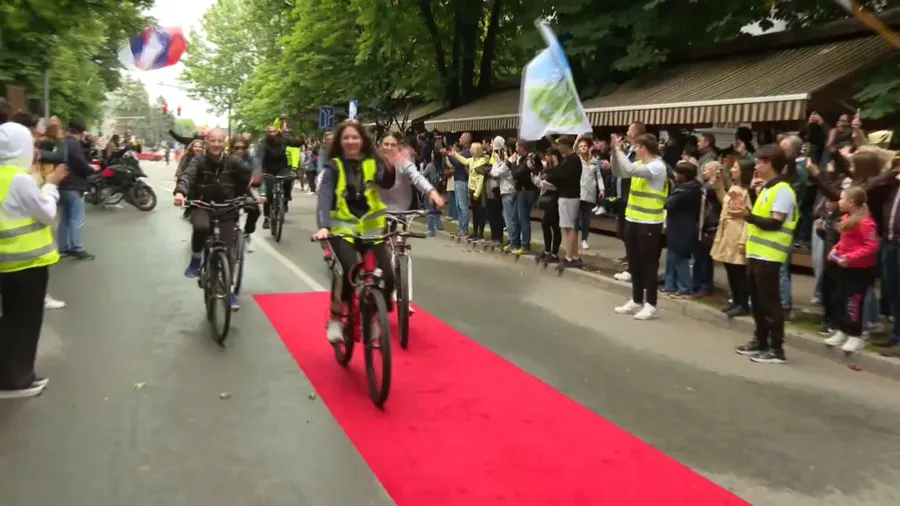Germany: Who does the suspension of families apply for? – The world
In the next two years, refugees with the so-called Subsidiary protection will not be allowed to bring members of their families to Germany. The plans of the new government in Berlin specifically affect the refugee from Syria.
« Before I came to Germany, I didn’t know it would be hard this hard. I just didn’t know. You know, men are not used to raising children, » Mohamed says. « Says Mohamed. That Syrian is alone in Germany with its nine year old son that has a severe disability and suffers from cerebral atrophy.
But Mohamed’s plan to bring in a German woman at some point and two daughters are not likely to succeed. The Coolition Agreement of the new German government envisions the abolition of the right to merge family for people who have the so-called. right to subsidiary protection.
Mohamed (who does not want to discover his last name), one of 351,400 people in Germany. Most of them are from Syria. The right to subsidiary protection is obtained by persons who do not meet the criteria for the status of the refugee towards the Geneva Convention, but in their country of origin are seriously threatened: inevitable or degrading or arbitrary violence regarding armed conflict.
People with subsidiary protection status receive a residence permit in Germany, which of 2024. It is valid for three years. They are allowed to work and receive social assistance. However, while asylum seekers and those who are recognized refugee status also have the right to bring spouses in Germany under 18 years old, people with subsidiary protection status do not have that right.
The new government wants to limit migrations through « policy change »
Federal Minister of the Interior Aleksander Dobrint says that citizens expect a « policy change », which in certain cases involve the abolition of enabling families. According to the new minister, the province’s ability to integrate newcomers « is simply limited and so we have to act ». Cities and municipalities across the country reached, he says, his borders.
The issue of reunification of the family for people with subsidiary protection status for years is the subject of political debates in Germany. The government led by the former Chancellor Angela Merkel 2015. approved by spouses, children or parents of persons whom subsidiary protection is entitled to merging family. This right, however, suspended in 2016, after only a year.
Since 2018, the family of persons whom subsidiary protection was assigned can unite again. The government, however, limited the number of visas issued at most thousandth per month – and there are long listing lists and long-term bureaucratic procedures. During 2024 years, relatives of persons whom subsidiary protection was issued about 12,000 visas.
Legal gray zones in connection with merging families
Human rights organizations, such as. « Pro asylum » indicate that separation from the family represents a huge psychological burden for affected. It has consequences and for integration in Germany, and when it comes to illegal immigration. Without a legal route to re-joining children, parents or spouses, some people become ready to risk and use often unsafe routes to get to their relatives.
Some legal experts believe that the EU directive of the family merger should not apply to subsidiary protection users, because it is adopted before that status is defined. However, there is a member of the 6 German Constitution (« marriage and families are under special protection of state order »), as well as the European Convention on Human Rights, which Germany ratified, which guarantees the right to family life.
However, an important limit was introduced by the Federal Constitutional Court in Germany, and was accepted by the European Court of Human Rights. « If there is an alternative to family life in another country, especially in the country of origin, then there is no automatic right to reunite family in Germany, » he explains for DW Thomas Gros, expert in German and EU law at the University of Osnabrik.
The visa process for family members takes a very long time
The German Federal Constitutional Court will eventually have to decide whether the interruption of family join for people with subsidiary protection is legally allowed. Thomas Gross expects it to take years. A recent study showed that it has already taken between six months and more than two years that family members receive a visa from German embassies.
« It’s not like going to the Embassy and the next day you fly for Germany. It’s a complicated and often DNA tests, sometimes the embassy is at the other country, and for many people it is practically impossible for them to come, » says Gros.
Mohamed’s visa for subsidiary protection is valid for another year. Its integration is difficult, because it is practically a permanent caregiver of his son, who needs regular visits to doctors. « The state should help my family come here, this is an exceptional humanitarian situation, » says Mohamed. « I don’t know how to last this for a long time? »
Follow us on our Facebook and Instagram page, but also on X account. Subscribe to PDF List release today.




/s3/static.nrc.nl/images/gn4/stripped/data132552526-5d808c.jpg|https://images.nrc.nl/-alLGZUlhOtkfEn53PT8JsozfPM=/1920x/filters:no_upscale()/s3/static.nrc.nl/images/gn4/stripped/data132552526-5d808c.jpg|https://images.nrc.nl/RjlZVcsZe2uK0D0I7UhkvHUjtOw=/5760x/filters:no_upscale()/s3/static.nrc.nl/images/gn4/stripped/data132552526-5d808c.jpg)

